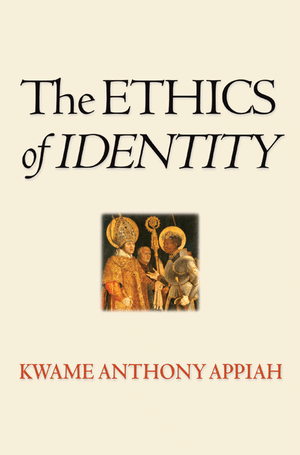Reflections: An Anthology of African-American Philosophy, 1st EditionPosted in Anthologies, Books, Law, Media Archive, Philosophy, Politics/Public Policy, Religion, Social Science, United States, Women on 2012-02-06 05:26Z by Steven |
Reflections: An Anthology of African-American Philosophy, 1st Edition
Cengage Learning
2000
464 pages
Paperback ISBN-10: 0534573932 ISBN-13: 9780534573935
Edited by:
James Montmarquet, Professor of Philosophy
Tennessee State University
William Hardy, Associate Professor of Philosophy and Religion
Tennessee State University
This anthology provides the instructor with a sufficient quantity, breadth, and diversity of materials to be the sole text for a course on African-American philosophy. It includes both classic and more contemporary readings by both professional philosophers and other people with philosophically intriguing viewpoints. The material provided is diverse, yet also contains certain themes which instructors can effectively employ to achieve the element of unity. One such theme, the debate of the “nationalist” focus on blackness vs. the many critics of this focus, runs through a great number of issues and readings.
Table of Contents
- Preface.
- Introduction.
- PART ONE: FOUNDATIONS-RACE AND RACISM.
- 1. W.E.B. DuBois: From The Souls of Black Folk.
- 2. Molefi K. Asante: Racism, Consciousness, and Afrocentricity.
- 3. Kwame Anthony Appiah: Racisms.
- 4. J. L. A. Garcia: The Heart of Racisms. Contemporary Issue: Views on “Mixed Race”.
- 5. Naomi Zack: Mixed Black and White Race and Public Policy.
- 6. Lewis R. Gordon: Race, Biraciality, and Mixed Race-In Theory.
- PART TWO: MORAL AND POLITICAL PHILOSOPHY-NATIONALISM, SEPARATISM, AND ASSIMILATION.
- 7. Martin R. Delaney: The Condition, Elevation, Emigration, and Destiny of the Colored Peoples of the United States.
- 8. Frederick Douglass: The Future of the Negro, The Future of the Colored Race, The Nation’s Problem, and On Colonization.
- 9. Marcus Garvey: From Philosophy and Opinions of Marcus Garvey.
- 10. Maulana Karenga: The Nguzo Saba (The Seven Principles): Their Meaning and Message.
- 11. Molefi K. Asante: The Afrocentric Idea in Education.
- 12. Cornel West: The Four Traditions of Response. Contemporary Issue: “Ebonics”.
- 13. Geneva Smitherman: Black English/Ebonics: What it Be Like?
- 14. Milton Baxter: Educating Teachers about Educating the Oppressed. Feminism, Womanism, and Gender Relations.
- 15. Sojourner Truth: Ain’t I a Woman?
- 16. Patricia Hill Collins: The Social Construction of Black Feminist Thought.
- 17. bell hooks: Reflections on Race and Sex.
- 18. Angela P. Harris: Race and Essentialism in Feminist Legal Theory.
- 19. Charles W. Mills: Do Black Men Have a Moral Duty to Marry Black Women? Contemporary Issue: Women’s Rights and Black Nationalism.
- 20. E. Francis White: Africa on My Mind: Gender, Counterdiscourse, and African American Nationalism.
- 21. Amiri Baraka: Black Woman. Violence, Liberation, and Social Justice.
- 22. Martin Luther King, Jr.: Letter from a Birmingham Jail.
- 23. Malcolm X: Message to the Grass Roots.
- 24. Howard McGary: Psychological Violence, Physical Violence, and Racial Oppression.
- 25. Laurence M. Thomas: Group Autonomy and Narrative Identity. Contemporary Issue: Affirmative Action.
- 26. Bernard Boxill: Affirmative Action.
- 27. Shelby Steele: Affirmative Action. Ethics and Value Theory.
- 28. Alain Locke: Values and Imperatives.
- 29. Michele M. Moody-Adams: Race, Class, and the Social Construction of Self-Respect.
- 30. Laurence M. Thomas: Friendship.
- 31. Cornel West: Nihilism in Black America.
- 32. Katie G. Cannon: Unctuousness as a Virtue: According to the Life of Zora Neale Hurston. Contemporary Issue: A Classic Question of Values, Rights, and Education.
- 33. Booker T. Washington: Atlanta Exposition Address.
- 34. W.E.B. DuBois: The Talented Tenth.
- PART THREE: PHILOSOPHY AND RELATED DISCIPLINES.
- 35. Patricia J. Williams: Alchemical Notes: Reconstructing Ideals from Deconstructed Rights.
- 36. Regina Austin: Sapphire Bound!
- 37. Derrick Bell: Racial Realism-After We’re Gone: Prudent Speculations on America in a Post-Racial Epoch.
- 38. John Arthur: Critical Race Theory: A Critique. Contemporary Issue: Racist Hate Speech.
- 39. Charles Lawrence and Gerald Gunther: Prohibiting Racist Speech: A Debate. Aesthetics.
- 40. James Baldwin: Everybody’s Protest Novel.
- 41. Larry Neal: The Black Arts Movement.
- 42. Angela Y. Davis: Billy Holiday’s “Strange Fruit”: Music and Social Consciousness.
- 43. Ralph Ellison: Blues People. Contemporary Issue: Rap Music.
- 44. Crispin Sartwell: Rap Music and the Uses of Stereotype.
- 45. Kimberle Crenshaw: Beyond Racism and Misogyny: Black Feminism and 2 Live Crew. Philosophy and Theology.
- 46. David Walker: David Walker’s Appeal to the Colored Citizens of the World, and Very Expressly, to Those of the United stated.
- 47. James H. Cone: God and Black Theology.
- 48. Victor Anderso: Ontological Blackness in Theology.
- 49. Anthony Pinn: Alternative Perspectives and Critiques. Contemporary Issue: Womanist Theology and the Traditionalist Black Church.
- 50. Cheryl J. Sanders: Christian Ethics and Theology in a Womanist Perspective.
- 51. Delores Williams: Womanist Reflections on “the Black Church,” the African-American Denominational Churches and the Universal Hagar’s Spiritual Church.
- SUGGESTIONS FOR FURTHER READING.

